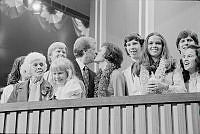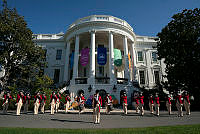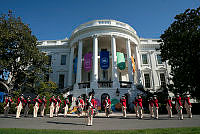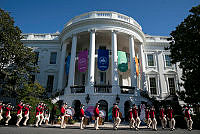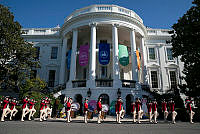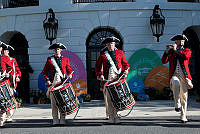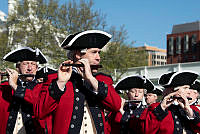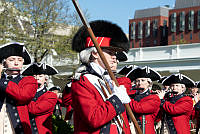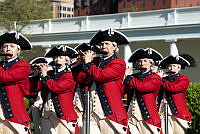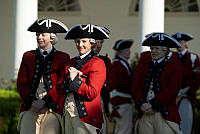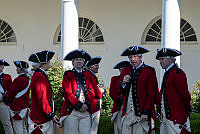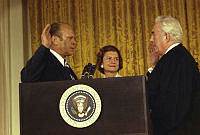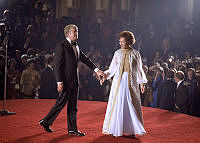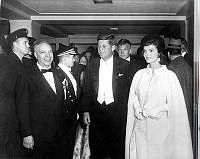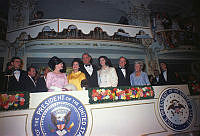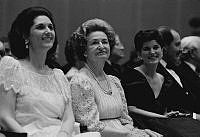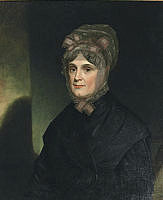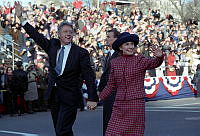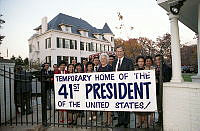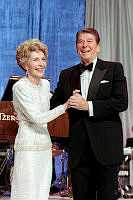Presidential Inaugurations: I Do Solemnly Swear
Copyright © White House Historical Association. All rights reserved under international copyright conventions. No part of this article may be reproduced or utilized in any form or by any means, electronic or mechanical, including photocopying, recording, or by any information storage and retrieval system, without permission in writing from the publisher. Requests for reprint permissions should be addressed to books@whha.org
Gallery
-

William Henry Harrison’s ceremony in 1841 was witnessed by the largest crowd to date with over 50,000 spectators.
Library of Congress -

In 1853, Franklin Pierce became the only president to "affirm" rather than "swear" his oath of office, as permitted in the Constitution.
Library of Congress -

Rutherford B. Hayes took the oath of office in the Red Room during a White House dinner hosted by outgoing President Ulysses S. Grant, March 3, 1877.
Rutherford B. Hayes Library -

William J. Clinton, standing between Hillary Rodham Clinton and Chelsea Clinton, taking the oath of office on January 20, 1993.
Library of Congress -

George W. Bush takes the oath of office, January 20, 2005.
National Archives and Records Administration -

Chief Justice John Roberts administers the oath of office to President Barack Obama during the inaugural swearing-in ceremony at the U.S. Capitol in Washington, D.C. on January 21, 2013. Next to President Obama is First Lady Michelle Obama, holding a Bible that belonged to Martin Luther King, Jr. and the Abraham Lincoln Bible with daughters Malia and Sasha.
Official White House Photo by Sonya N. Hebert
Article II, Section 1 of the Constitution specifies the oath the president takes in assuming the responsibilities of this highest executive office: "I do solemnly swear (or affirm) that I will faithfully execute the Office of President of the United States, and will to the best of my ability, preserve, protect, and defend the Constitution of the United States."
George Washington took the oath with his hand on a Bible, and almost all other presidents have followed suit. Most use a special family Bible, leaving it open to a passage that has particular meaning for them. Traditionally, the Chief Justice of the United States Supreme Court administers the oath, but in cases when vice presidents have assumed the presidency because of a death, others do the honors. When Warren G. Harding’s death elevated Calvin Coolidge to the presidency, his father, a justice of the peace, administered the oath.
A president whose term begins on Sunday takes the oath privately on that day, and repeats it in a public ceremony the next day. The solemnity of the swearing-in ceremony reflects the importance the Founders attached to the executive office.













